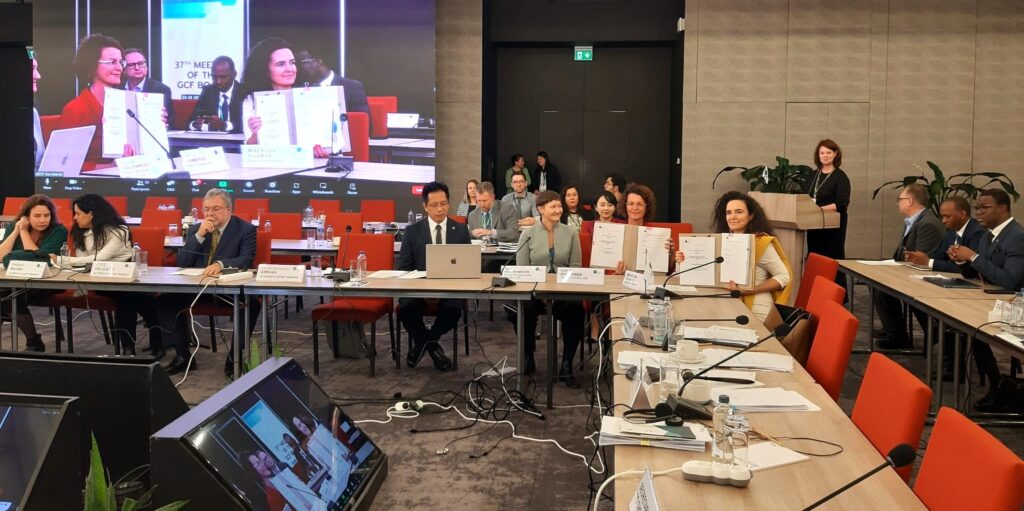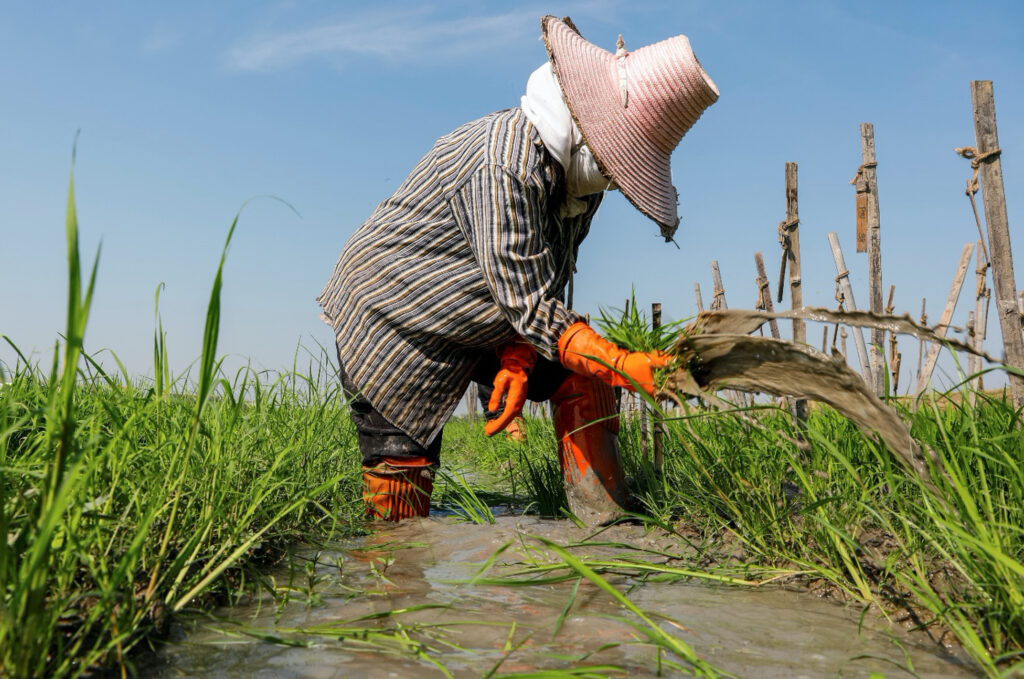2.4 million tonnes of CO2 equivalent is expected from their shifted practices
The new five-year project, “Thai Rice: Strengthening Climate-Smart Rice Farming”, proposed by GIZ, has been approved by the Green Climate Fund (GCF) with a 38 million euro grant to help improve more climate-friendly practices among Thai farmers.
The signing of the Funded Activity Agreement (FAA) for the project was held late last month during the 37th meeting of the GCF Board in Tbilisi, Georgia. The GCF is the largest international climate financing institution, investing in climate change projects in developing countries to support their Nationally Determined Contributions (NDC) in line with the Paris Agreement. The Fund invests in climate change mitigation projects that reduce greenhouse gas emissions, as well as in climate change adaptation projects that alleviate the impacts of climate change.
Thailand’s rice is the most important food crop, accounting for roughly half of the country’s agricultural land and employing more than 18 million smallholder farmers. Methane from flooded rice fields and CO2 emissions from the annual burning of rice straw, however, make up a significant portion of the country’s greenhouse gas (GHG) emissions, according to the GCF. At the same time, many smallholder farmers struggle to cope with climate change-induced fluctuations in rainfall patterns that have multiplied floods and drought, damaging farmers’ crops and threatening livelihoods.
The Thai Rice: Strengthening Climate-Smart Rice Farming project, the GCF’s first of this kind, is aimed at promoting low-emission and climate-resilient rice farming. Similar projects were held by foreign aid agencies and Thai agencies in the Central Plains and the Northeast some years back.
During its 5-year implementation period, the new project with larger funding will support Thai rice farmers and service providers in the adoption of a series of climate-smart technologies and practices and deliver farmer-friendly financial products to sustainably manage rice farming. The intervention is projected to significantly decrease methane emissions and water-usage from rice farming in Thailand, while also boosting farmers’ overall climate resilience. The project will also allow Thai rice farmers to recycle their rice straw into new products and create new local market opportunities.
It is expected to benefit more than 250,000 smallholder farmers in Thailand and mitigate 2.4 million tonnes of CO2 equivalent. This cross-cutting project will both reduce emissions as well as reduce impacts from climate change on farmers, according to GIZ.
According to the organisation, “Thai Rice GCF” has been developed across a multi-year stakeholder consultation process and is following a bottoms-up logic: the project aims to empower vulnerable smallholder farmers to make improved decisions in the face of climate change and enable access to climate-smart farming technologies.

The GCF as such has approved a 38-million euro grant contribution towards the project. The co-financing is provided by Thai public sector partners including the Thai Rice Department, the Bank for Agriculture and Agricultural Cooperatives (BAAC) and the Office of Natural Resources and Environmental Planning (ONEP). It is supported by the German Federal Ministry for Economic Cooperation and Development (BMZ) and private sector partners.
Mr. Pavich Kasawong, Deputy Director-General of the Department of Climate Change and Environment (DDCE) said the GCF Thai Rice project aims to facilitate a transformational change in the Thai Rice sector. “This will be achieved through a large-scale rollout of sustainable and climate-smart farming practices, ultimately benefiting thousands of farmers throughout Thailand,” said Mr. Pavich.
“The Thai Rice project neatly finds its place in the strengthening cooperation between GCF and GIZ and the growing trust between the two institutions,” added Ms Ina Hommers, Director-General of Client liaison and business development at GIZ.
Project implementation is expected to start in 2024 and run through 2029.
Indie • in-depth online news agency
to “bridge the gap” and “connect the dots” with critical and constructive minds on development and environmental policies in Thailand and the Mekong region; to deliver meaningful messages and create the big picture critical to public understanding and decision-making, thus truly being the public’s critical voice


